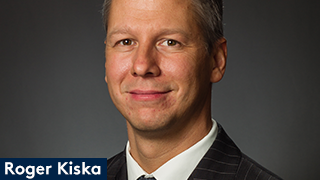CLC Presents Paper at University of Nottingham Law School Symposium

This past Monday, the Christian Legal Centre’s Roger Kiska presented a paper at the Human Rights, Law & Religion: Flashpoints symposium held by the Centre for Conflict, Rights & Justice at the University of Nottingham School of Law. He presented on the growing legal conflict between freedom of religion, sexual orientation and gender identity.
The presentation highlighted a number of cases supported by Christian Concern where Christians were discriminated against because of overly broad laws promoting sexual orientation. Kiska also examined the legal problems that arise when defining sexual orientation and gender identity overly broadly.
He lamented the fact that cases coming from non-precedent setting legal tribunals were establishing an artificial hierarchy of rights which overtly discriminate against Christians and religious expression in the public square. Parliament, when legislating the Equality Act, created no such hierarchy and Christians enjoy the same legal protections as everyone else in society.
The presentation also looked at the dangers of courts and some political actors using the term freedom of worship rather than freedom of religion. Those who use freedom of worship do so intentionally, as a means of limiting freedom of religion to the private sphere of home and within their church community. The implication is that we enjoy freedom to worship, but are far more limited in our religious expression in the public square. This however, as the presentation makes clear, is not at all what freedom of religion entails, and Christians enjoy as much right to express their faith in the public square as any other form of expression.
Kiska concluded that it is too early to determine how the courts will ultimately balance freedom of religion with sexual orientation and gender reassignment. He noted however that we must rescue freedom of religion from this notion of freedom of worship. He closed his presentation saying that courts also have a duty to far more clearly define the limits of sexual orientation and gender reassignment.
